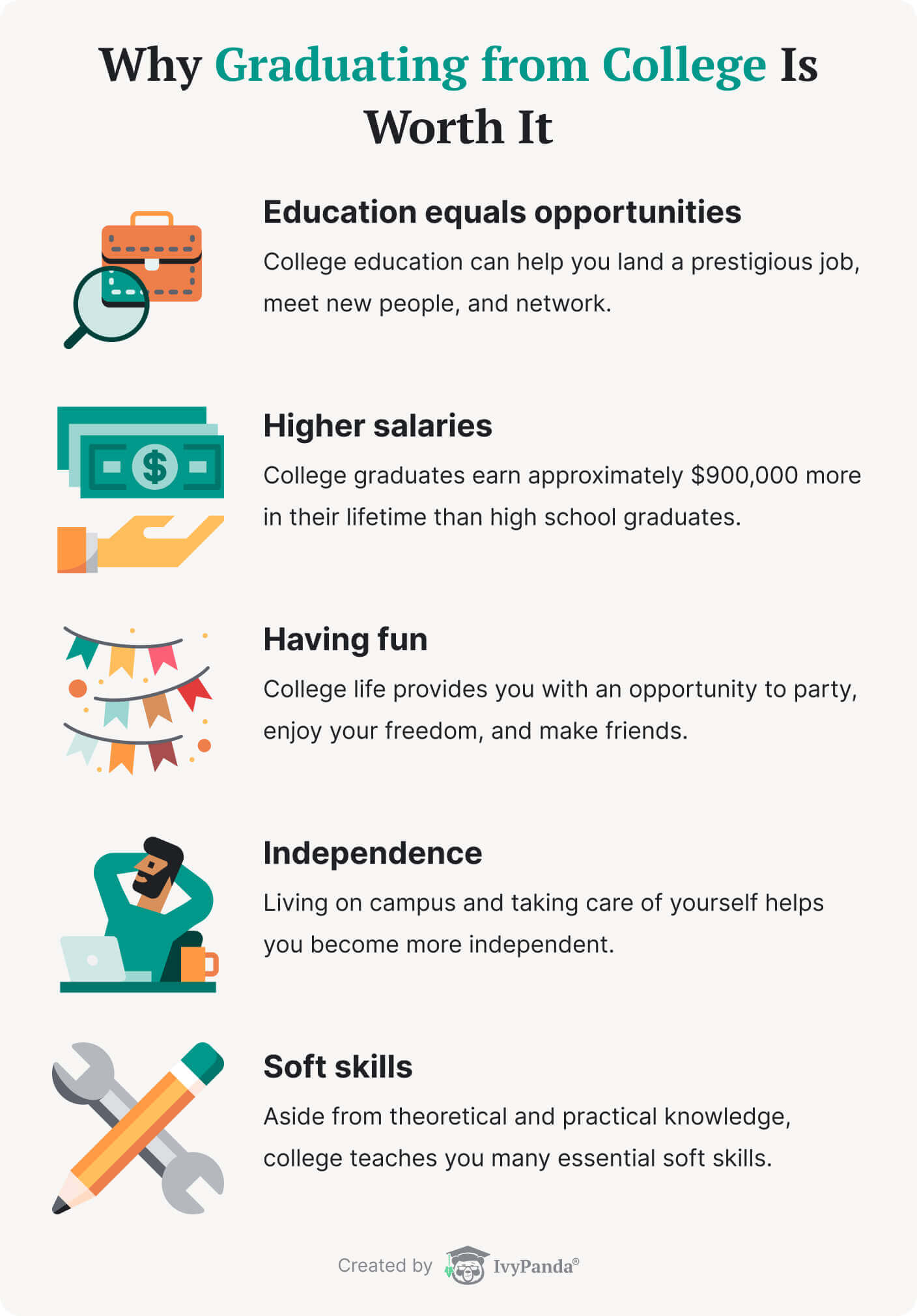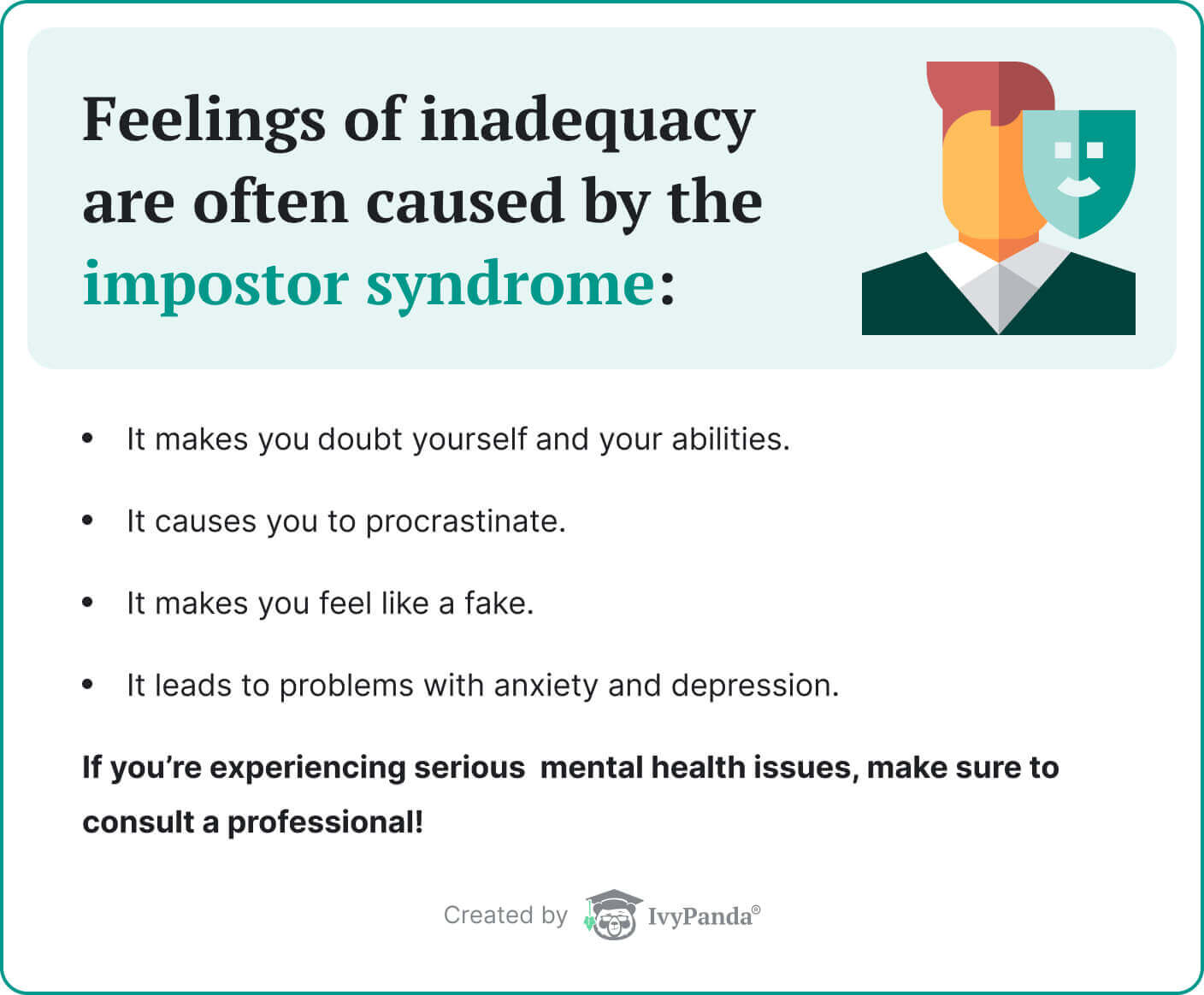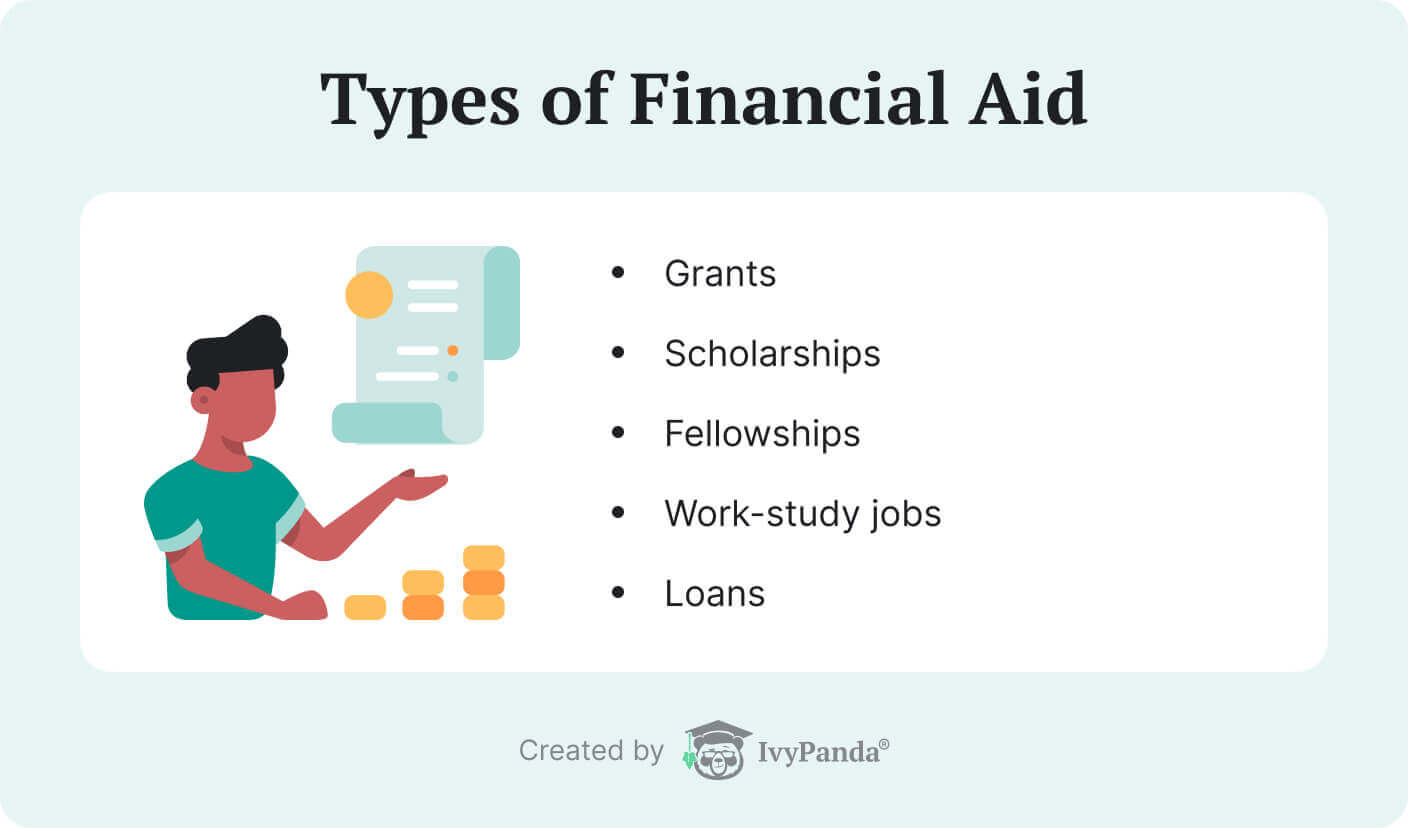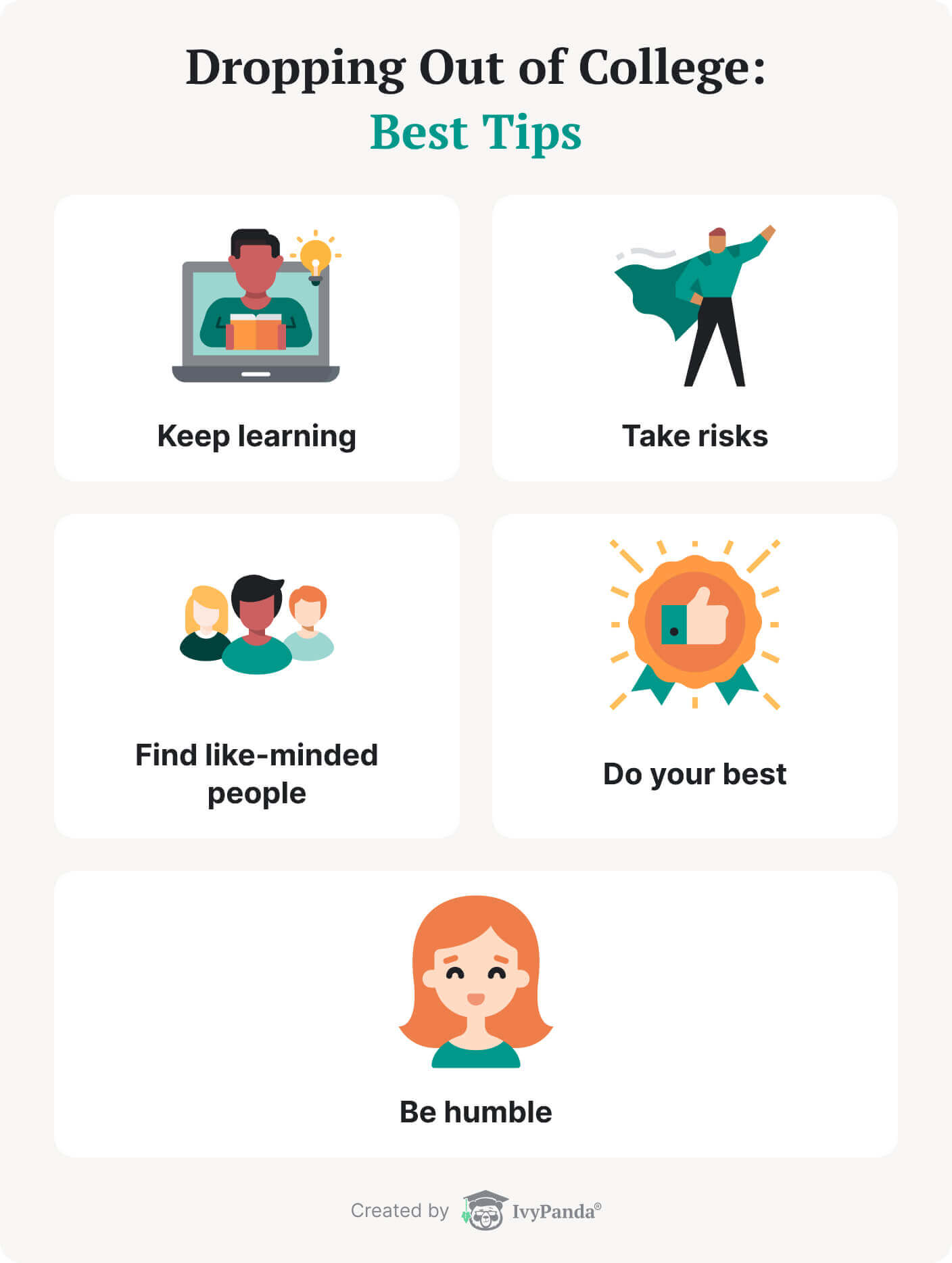Whether you should drop out of college depends on your personal goals, financial situation, career prospects, and other challenges you’re facing. For some, the thought of dropping out means struggles like financial difficulties and mental health problems. For others, quitting college might be equal to estrangement with friends and distancing from academia.

If the intrusive idea “I want to drop out of college” doesn’t let you sleep peacefully, keep in mind that it is not a one-size-fits-all solution and comes with both risks and potential opportunities. Understanding the two-sided nature of this issue requires careful self-reflection and research. In this article written by our team, we refer to these and other essential aspects of dropping out of college:
- Possible reasons for leaving college and why it can be bad
- 15 questions to ask yourself before dropping out
- Best tips on what to do if you decide to quit college
Read on to learn all the ins and outs of this challenging process.
🎓 Possible Reasons for Leaving College
If you want to drop out of college, you are not alone. According to recent statistics, roughly 32.9% of students do not graduate from their program. There are plenty of reasons why a student might decide not to finish their education:
🙅 Why Leaving College Is a Bad Idea
Regardless of the reasons listed above, giving up on college is a very drastic measure. Here are some of the major reasons why education is worth pursuing and why dropping out of college is a bad idea:

❓ 15 Questions to Ask Yourself Before Dropping Out
So far, we’ve examined several arguments for and against leaving college, but you might still feel indecisive. We suggest you answer the following fifteen questions to consider all the pros and cons before making an informed decision. These answers will help you understand your situation and decide whether dropping out of college is your best option.
1. Will I Benefit from Leaving College?
Think about it: you should only consider dropping out of school if the benefits outweigh the drawbacks. If you’ve just landed a better career, found a professional development option, or a life-changing opportunity comes your way, it might be a good idea to leave college. However, if your decision is based on resentment or frustration, try to reconsider. The ability to cope with stress and overcome obstacles will help you later in life!
2. Why Do I Really Want to Quit?
One of the first things you need to do before quitting is to examine why you really want to leave. You may find that the problem has an easier solution. For example, you might need help paying your bills or figuring out how to balance your work and studies. Many students struggle to adjust to new environments like college. Approaching your teacher for assistance is a great first step.
3. Am I Quitting Because of a Feeling of Inadequacy?
It is very common for students to feel inadequate due to various reasons, be it mental health problems, test anxiety, impostor syndrome, or academic difficulties. Research shows that 30 to 40% of all students share these sentiments. However, dropping out of college might not be the right solution. Why not visit a college counselor or a therapist? Colleges offer numerous support options, and we suggest you look into them.

4. Is My Social Life Ruining My Studies?
Finding a balance between studying and socializing can be a challenge. It’s tricky because some students party excessively while others may experience isolation. Too much socializing can lead to lower grades, and not having enough friends may affect your mental health. Counselors can provide support, practical tips, and guidance to resolve these issues.
5. Have I Spoken About It with My Friends and Family?
Sometimes speaking with family and friends can help you make a good decision. You may share your problems and concerns with them and discuss your options. People who care about you will always try to give the best advice.
6. What Am I Going to Do Next?
If you decide to drop out of college, you need to have a plan for the future. It’s vital to have something that will keep you busy, help you evolve, and provide you with sufficient income. Make sure your plan B is plausible and will assist you in achieving your long-term goals.
7. Can an Academic Advisor Help Me Decide?
Most colleges and universities introduce you to your academic advisor at the beginning of the year. Consider consulting them before making a life-changing decision. An academic advisor can help if you are struggling mentally, financially, or academically.
8. Can I Get Financial Aid?
Do you feel forced to leave due to financial struggles? You may not be aware of it, but there are many options worth considering instead of dropping out. Financial aid programs are available for students depending on the college, starting from loans with interest rates, scholarships, fellowships, and bursaries. Alternatively, you can look for a part-time job to help with your expenses and tuition.

9. Will I Be Able to Pay Back My Student Loans?
Financial stress is one of the main reasons why students drop out of college. Before quitting, you should know that you will still need to repay your student loans. So, consider the decision carefully and ask yourself, “should I quit college after spending thousands of dollars on a degree I will not finish?”
It’s also important to remember that if you have a federal loan, you will have to start paying it off six months after you leave college. Some universities have banks, so you can ask for financial aid to gain a little more time.
10. Can I Get My Education at a Lower Cost?
You might feel that higher education is expensive and not worth it. You are not alone! It’s a common problem among students, and there are, in fact, many ways to get a degree at a lower cost, such as scholarships and fellowships. If none of these options work, you can transfer to a community college or no-degree college, which are far less expensive than private or public schools.
11. Can I Transfer or Switch Degrees?
If you have realized that you are not enjoying what you are studying, you can change your major. Many students have to decide on a career before even entering college. So, if you feel that another subject will be more suitable for your personality and interests, go for it. The majority of universities have provisions for students facing a similar dilemma.
12. Can I Take a Break Instead of Dropping Out?
Ask yourself, “should I drop out of college, or do I just need a break from it?” You can always come back after a few months and decide whether your sentiments were caused by social isolation, academic failure, or financial stress.
13. Am I Able to Finish My Current Degree?
Most universities allow students to reenroll in their program after dropping out if they have already advanced in the degree. Of course, if you have left early on, the situation might be different. But if you only have one year before graduation, why not try to finish your degree?
14. Have I Tried Everything My School Has to Offer?
You might have noticed that many problems can be solved while you are still in college if you ask for help and assistance. You can find a tutor, see your professors during office hours, take advantage of the counseling available on campus, or join a study group. Ask yourself if you have tried all the possible options.
15. Will I Get the Job I Want Without a Degree?
It is absolutely possible to find a job without a degree, and many people do that. However, depending on the position you want, it might be more challenging when it comes to higher-paying jobs. If you already have a professional area that interests you, ask yourself if you can get that position without the relevant education.
We don’t recommend using successful college dropouts such as Steve Jobs and Bill Gates as inspiration: they are the exceptions to the rule!
💡 What to Do After Dropping Out of College
So, you’ve considered all the pros and cons and have decided to quit your studies. Let’s see what you can do next. Here are some of the most exciting options to choose from:
🎁 Bonus Tips for Dropping Out
And finally, our team has gathered some essential tips on how to make the process of dropping out less stressful and continue living your life to the fullest:

✅ Never stop learning and developing yourself.
Education doesn’t end with school, so striving to be your best every day will help you grow. Don’t let your brain go loose just because you dropped out of college.
✅ Don’t be afraid to take risks.
Leaving college before graduation is a considerable risk, so be sure to continue taking an active role in your life even after making this step. It will help you make new connections, do exciting things, and constantly grow as a person.
✅ Find a network of friends and like-minded people.
You still need mentors and friends even if you are not in school anymore. Find such individuals and stick close to them. We all need people who inspire us, motivate us, and help us grow.
✅ Do your best.
Push yourself as hard as you can to reach your goals. Yes, you aren’t getting grades from your professors, so why not grade your progress yourself? Be consistent and hardworking, and you’ll be successful in whatever you do.
Make sure to reward yourself and get enough rest to avoid burnout!
✅ Be ready to start from the entry level.
Humility is one of the requirements you need in order to succeed in a new profession. First, allow yourself to learn from others, and second, work your way up from the ground floor. You can climb the ladder even without a college diploma if you have the right attitude and work ethic.
Thank you for reading our article! We hope our advice will help you make the best decision. Share these tips with your friends that are also considering dropping out of college. Good luck!
🔗 References
- College Dropout Rates: ThinkImpact
- Will Going to College Make You Happier?: The Atlantic
- Impostor Phenomenon in the Classroom: Brown University
- Is College Worth The Cost? Pros Vs. Cons: Forbes
- How to Be a Successful College Dropout: Research.com
- Should You Drop Out of College?: The Best Schools
- Dropping out of University: Why, How and What to Do After: Career Addict
- 4 Reasons Taking a Break from College Isn’t the Same as Dropping Out: Rasmussen University
- More Students Are Dropping Out of College in the US – Here’s Why: World Economic Forum
- 14% of Students Say They Dropped Out of College Because of Mental Health Challenges: Fortune

![Data Backup in 2026: Best Free & Paid Options [+Infographic]](https://ivypanda.com/blog/wp-content/uploads/2022/10/girl-student-with-laptop-standing-by-window-corridor-309x208.jpg)


Hello!
I’m yousaf Amin I’m doing my law degree it’s my first year. But i want to take a break for 1 year ¹is it’s good? And ²what should i do in this free year to make myself financial good. ³Can you tell me some online or physical work which can help me in this year.
I will be thankful for your response.